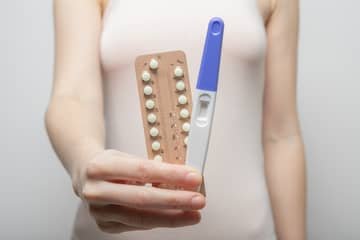
The best vitamins for pregnant women. Natural vitamins in pregnancy have good reviews
If you are expecting or planning a baby, you should start pampering your body. This applies not only to taking care of the body from the outside, but also from the inside. This includes exercise during pregnancy, which keeps the expectant mother in shape and helps her prepare for childbirth, and a healthy diet. A pregnant woman needs several vitamins and minerals, which should be a regular part of her diet. Of course, food supplements are suitable, thanks to which you supply the body with the right amount of nutrients and vitamins, but also the supply of vitamins in the diet.
Neglecting the intake of vitamins and minerals during pregnancy can cause complications before and during childbirth and also adversely affect the health of the future mother and child. What vitamins to take during pregnancy? A pregnant woman should not lack several substances, among others folic acid, iron or calcium.
The best vitamins for pregnant women
During pregnancy, the requirements for the intake of certain vitamins and minerals are high, even though the mother-to-be eats a healthy diet, it is often necessary to supplement them. Vitamins for pregnant women are a must for an unbalanced diet, certain types of diets (vegetarianism, food intolerances) or for pregnancy sickness. Some vitamins should be taken in the first trimester, others are needed in the second or third trimester.
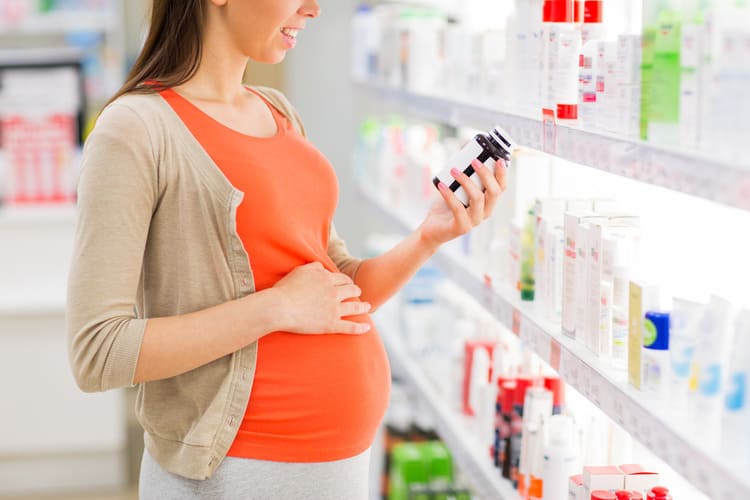
Folic acid in pregnancy
Folic acid or vitamin B9 should be taken in larger quantities even before the conception of the baby, but it should be continued during the 1st trimester. It has a decisive influence on the formation of cells and the development of the nervous system of the developing fetus. In the early stages of pregnancy, the development of the spinal cord, spine and brain of the fetus occurs, folic acid helps to reduce the risk of some congenital developmental disorders of the fetus. Vitamin B9 also has a positive effect on the future mother - it has a positive effect on her immunity, hematopoiesis and psyche.
Daily intake of folic acid should be 600 to 1,000 micrograms (mcg) per day. A lack of folic acid can cause a cleft in the child's neural tube or premature birth. Nuts, forest fruits, legumes, root vegetables, spinach, tomatoes, cabbage, soy and breakfast cereals contain folic acid. The beneficial substances of folic acid are destroyed by cooking and long-term storage, so it is especially suitable to eat fresh vegetables and take vitamin B9 in the form of vitamin supplements.
Vitamins from group B or B-Complex are involved in the proper formation of cells. Vitamin B1 (thiamine) is involved in energy metabolism, vitamin B2 (riboflavin) contributes to skin health and the formation of red blood cells, vitamin B6 (pyridoxine) is involved in blood formation and nutrient metabolism, also helps with pregnancy sickness, vitamin B12 (cyanocobalamin) is related with proper cell division and blood formation.
Iron in pregnancy
It is a trace element important for the future mother and child. Iron is necessary for hematopoiesis, it is responsible for the transfer of oxygen from the lungs to individual parts and organs of the body, including the developing fetus. During pregnancy, the body needs more of it due to the increased blood flow to the uterus. A lack of iron during pregnancy can affect the mother-to-be's fatigue and cause shortness of breath even with minor exertion. Iron deficiency can cause premature birth and postpartum depression. You should consult a gynecologist about its amount and possible deficiency, avoid supplementing it automatically without consulting your doctor, because not only the lack of this vitamin, but also its excess can be dangerous.
Daily intake during pregnancy should be 27-30 milligrams (mg). You can take iron in your diet, it is found in red meat, legumes, cereals, dried fruit, spinach, sesame seeds, nuts, poppy seeds and cereals, but also as a nutritional supplement. Iron absorption is supported by vitamin C, so it is necessary to increase its intake as well.
Vitamin C is involved in the hematopoiesis process, affects the building of bone mass, is essential for the formation of collagen and is important for the immune system. The recommended dose during pregnancy is max. 100 mg. You can find this antioxidant in peppers, black currants, citrus fruits, potatoes, broccoli or cabbage.

Vitamin D
Vitamin D is also among the necessary vitamins during pregnancy. Its intake should be taken care of especially in the 3rd trimester. It takes part in the processing of calcium, thus it has a significant effect on the condition of the bones, it is necessary for the proper functioning of the muscles and the transmission of nerve impulses. A child needs vitamin D for muscle growth and nerve development. The body naturally draws it from the sun, so just a few minutes in the sun a day and you should have enough of it.
Insufficient intake can lead to gestational diabetes, weakened immunity or low birth weight of the child. Apart from the sun, sources of vitamin D are fatty fish (salmon, sardines, mackerel) or egg yolks. Pregnant women should take at least 200 IU daily, or 5 mg of vitamin D.
Calcium in pregnancy
It is an important building block of bones and teeth, supports the heart, nerves, muscles, not only of the mother, but also of the child. A woman can take it from the 1st or at least from the 2nd trimester in a dose of around 1,000 mg per day, which is almost twice the recommended daily dose for an ordinary person. Its insufficient intake will not affect the baby, it will take it from the mother's body, but its correct level is not harmful. Especially in the 2nd trimester, it can help you fight against cramps.
A natural source of calcium is milk and milk products, it is found in poppy seeds, spinach, broccoli, but also in nuts and soy.
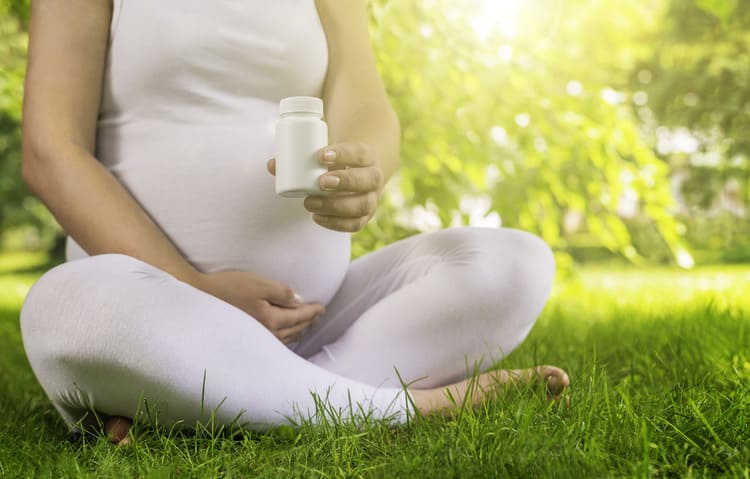
Magnesium
Magnesium is necessary for the proper development of muscles and nerves (it plays an important role in protein synthesis), as well as for the growth of bones and teeth. It helps with excessive hardening of the abdomen, high blood pressure and also if you suffer from cramps in the calves. In the first trimester, it helps to alleviate morning sickness and as a prevention against miscarriage. In the second and third trimester, it prevents the increase in blood pressure, hardening of the abdomen and reduces the risk of premature birth. Its increased intake is necessary especially between the 20th and 30th week of pregnancy, because with its lack, the body begins to draw supplies from bones and the fetus.
Daily intake should consist of 350-400 mg of magnesium. The exact amount will be recommended by the doctor according to the current needs of the expectant mother and the stage of pregnancy. Its sources are whole grain products, sunflower seeds, nuts, fish, artichokes, dates or bananas.
Iodine
Vitamins for pregnant women without iodine? Definitely not. You should not underestimate its importance during pregnancy. It is indispensable for the proper function of the thyroid gland of the mother and the developing fetus. It also helps in the formation of the fetal nervous system. With a lack of iodine, the risk of birth defects and miscarriage increases.
The recommended amount for pregnant women is 250 micrograms per day. The source of iodine is seaweed, fruits and fish, it is found in flax seeds, tomatoes, basil, garlic, currants, raspberries, lemons and cherries. You can also find it in iodized table salt, but be careful with it.
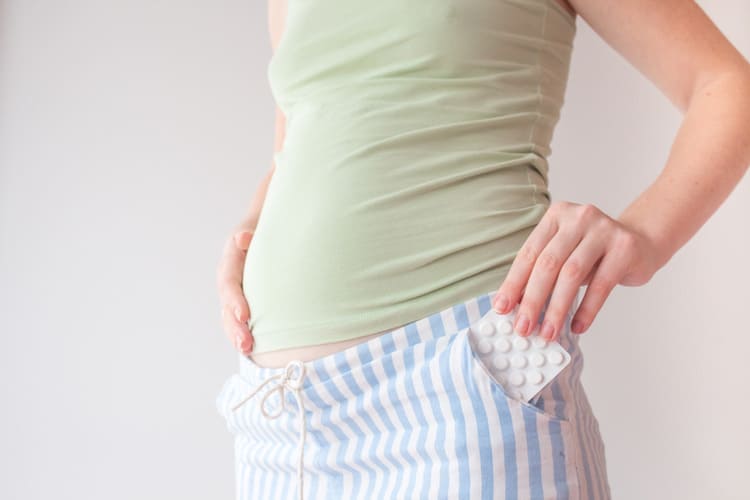
Omega-3 fatty acids
Essential fatty acids are involved in many processes by acting in the cells - the brain, skin and eyes need enough DHA and EPA for health. The body cannot produce omega-3 in sufficient quantity, so it is necessary to stimulate its increased intake with nutritional supplements. Deficiency can cause premature birth during pregnancy, so doses should be increased especially in the 3rd trimester of pregnancy.
The recommended daily dose of omega-3 acids is at least 450-650 mg, of which DHA 300 mg and the rest EPA. They are found in fatty sea fish and flax seeds, but these substances are better consumed in food supplements.
Choline in pregnancy and breastfeeding
The group of vitamin B complex includes the substance choline, which the body can partially produce by itself (from the amino acid methionine, folic acid and vitamin B12), the rest is received from food. It is important for the healthy development of the child's brain, so it is necessary to increase its intake during pregnancy and breastfeeding.
The recommended daily dose during pregnancy is 450 to 550 mg, while breastfeeding it is up to 550 mg. Suitable sources are leafy greens (lettuce, Chinese cabbage, kale), egg yolks, liver, beef, soy, wheat germ, yeast, milk and peanuts.
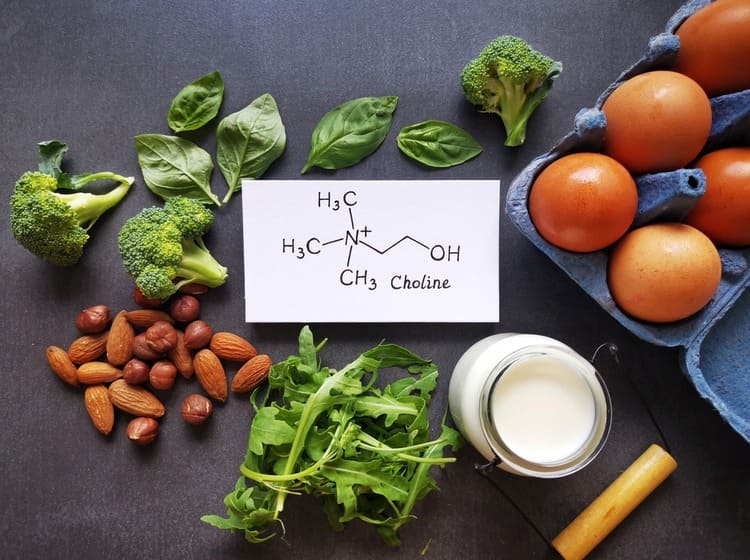
Vitamin A, selenium and zinc in pregnancy
Vitamins and minerals are generally necessary for the human body, but they should not be taken in excessive amounts, as high doses can have an adverse effect on both the pregnant woman and the fetus. Zinc takes care of the proper functioning of the immune system and accelerates the healing of wounds. You should not take more than 10 mg per day. Zinc is found in nuts, legumes, seeds and meat. Selenium also contributes to the proper function of the thyroid gland. This trace element plays an important role in the body as an antioxidant, it is found in seafood, meat and garlic. Vitamin A should not be neglected during pregnancy, but you should be careful about the amount taken. In pregnancy, this vitamin has many positive effects, but in high doses it can be toxic and endanger the fetus. Liver and pates should be avoided, carrots, which contain beta-carotene and which is converted into vitamin A in the small intestine, will not harm you.
Balanced diet and natural vitamins for pregnant women
During pregnancy, you should eat everything, but in moderation. The diet should be full of proteins, contain fats and carbohydrates, fresh fruits and vegetables should not be missing. The increased need for vitamins and minerals during pregnancy can be difficult to meet, therefore, in addition to a balanced diet, do not forget about nutritional supplements for pregnant women containing a complex of vitamins and minerals. They are the basis for the proper development of the baby and also affect the health and psychological well-being of the future mother. According to reviews, Femibion, LadeeVita, Jamieson Prenatal or Elasti-Q vitamins and minerals are very popular. In all cases, these are preparations with a large amount of vitamins and minerals. If the body does not lack any important substance and the baby gets what it needs, the pregnancy should go smoothly. When choosing pregnancy vitamins, you can rely on the reviews of women who used them in the 1st, 2nd or 3rd trimester, and the opinion of a doctor who will recommend products with a complex composition. In this way, you will ensure vitamins for yourself and your baby, which can replace other nutritional supplements, e.g. hair vitamins for pregnant women.
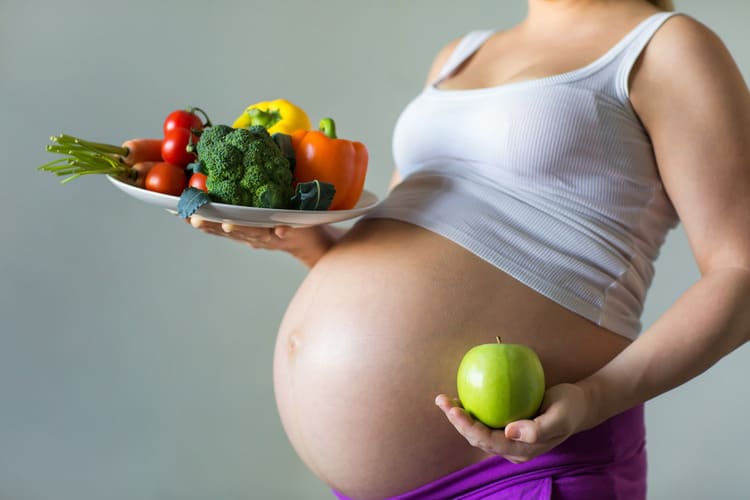
Vitamins in pregnancy - experience
According to mothers, the most important vitamin during pregnancy is folic acid. As they said, natural vitamins are the best, but you need to have blood tests done and find out which vitamin or mineral you are lacking. Several mothers supplemented their diet with vitamins B and C, took magnesium and omega-3. They recommend using e.g. nutritional supplements Femibion 1 and then 2 or Ladeevita. Some vitamins are not recommended at all, especially if you have a balanced diet.
The most frequent questions - FAQ
Do you need to take vitamins during pregnancy or is a balanced diet enough? What vitamins and minerals are important in pregnancy? Nutritional supplements intended for pregnant women contain a complex of vitamins and minerals, so it makes sense to take them if you do not get all the necessary components from your diet. In the article, we told you which vitamins are important for the development of the fetus and in what quantity to take them. If you have further questions or want to share your experience, the comments below the article are available for you.
Which vitamins should I take in the 1st, 2nd, and 3rd trimesters of pregnancy?
Can I take vitamin E during pregnancy?
Are there hair vitamins for pregnant women?
Pridať komentár




